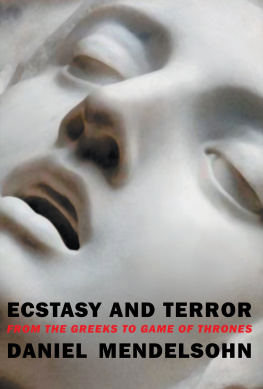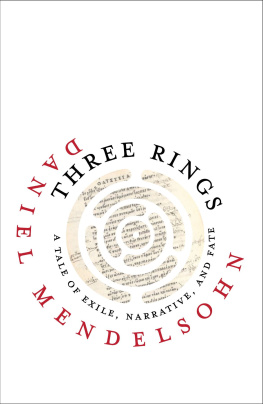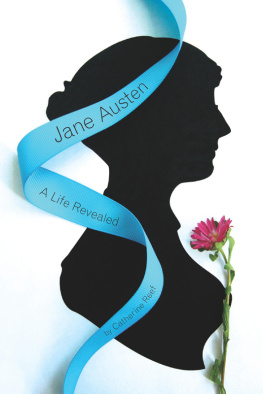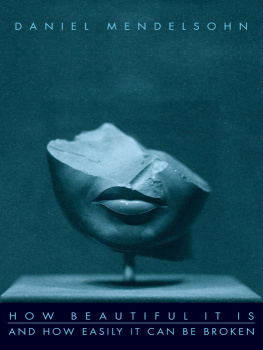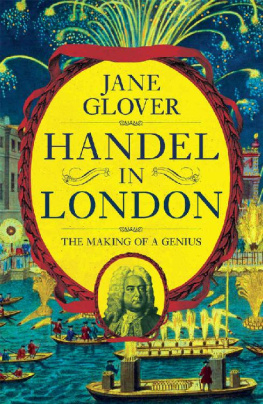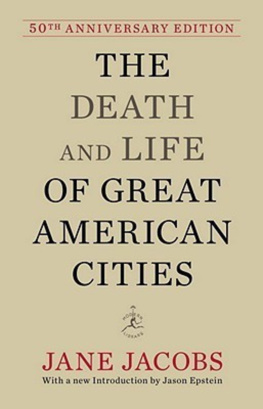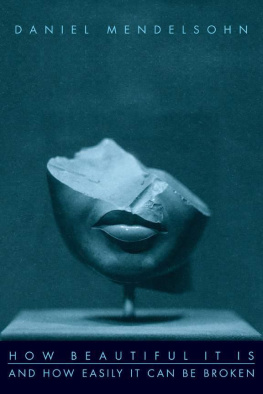Jane Mendelsohn - American Music
Here you can read online Jane Mendelsohn - American Music full text of the book (entire story) in english for free. Download pdf and epub, get meaning, cover and reviews about this ebook. year: 2010, publisher: Knopf, genre: Art. Description of the work, (preface) as well as reviews are available. Best literature library LitArk.com created for fans of good reading and offers a wide selection of genres:
Romance novel
Science fiction
Adventure
Detective
Science
History
Home and family
Prose
Art
Politics
Computer
Non-fiction
Religion
Business
Children
Humor
Choose a favorite category and find really read worthwhile books. Enjoy immersion in the world of imagination, feel the emotions of the characters or learn something new for yourself, make an fascinating discovery.

- Book:American Music
- Author:
- Publisher:Knopf
- Genre:
- Year:2010
- Rating:3 / 5
- Favourites:Add to favourites
- Your mark:
- 60
- 1
- 2
- 3
- 4
- 5
American Music: summary, description and annotation
We offer to read an annotation, description, summary or preface (depends on what the author of the book "American Music" wrote himself). If you haven't found the necessary information about the book — write in the comments, we will try to find it.
American Music — read online for free the complete book (whole text) full work
Below is the text of the book, divided by pages. System saving the place of the last page read, allows you to conveniently read the book "American Music" online for free, without having to search again every time where you left off. Put a bookmark, and you can go to the page where you finished reading at any time.
Font size:
Interval:
Bookmark:
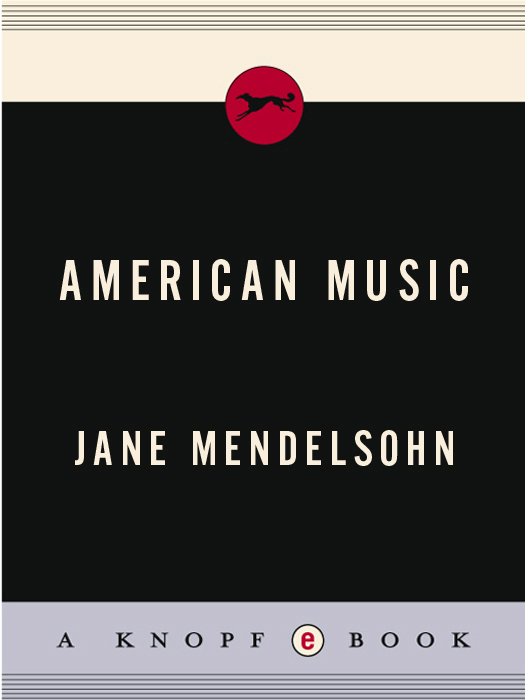
ALSO BY JANE MENDELSOHN
I Was Amelia Earhart
Innocence
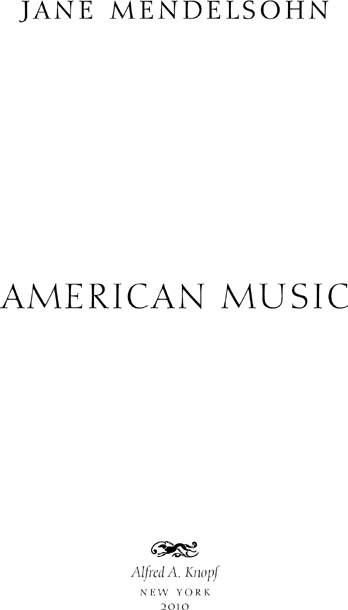
TO MY PARENTS,
TO MY DAUGHTERS,
AND, ALWAYS,
TO NICK
O boys, this story
The world may read in me: my bodys markd With Roman swords.
WILLIAM SHAKESPEARE , Cymbeline
If you expect happy days, look out.
BILLIE HOLIDAY , Lady Sings the Blues
S he stands up in the subway car where she has been sitting and looks out into the darkness. Her stop is coming and she likes the moment before the light breaks through the window. There is her reflection in the glass, a ghost with a shifting skeleton and a visible heartbeat as the columns and dim lights that make up the architecture of this underworld scroll through her body rapid-fire in the blackness. Then she disappears into the light. She turns toward the doors. She adjusts the strap of the bag slung across her chest and quickly steps onto the platform.
It is raining softly when she emerges onto the street. From a distance, she appears to be marching, silently, through the mist. With her steady gaze and long coat, her faded satchel and heavy boots, she looks both present and ancient. She looks like some beautiful soldier arrived from history.
She walks several blocks along empty gray streets toward a large white undistinguished building. In the lobby of the building she shows an identification card and rides up in the elevator. She steps off and walks down a hall. A door is open for her. Inside, a man is lying chest down on a table, a thin white sheet covering his body. His hand lifts slightly when she enters.
Youre here, she says.
Im here, he says.
Thats something, she says.
It is.
Every week she pulls down the sheet and studies his back. She washes her hands and oils them and then rubs the oil onto the skin. His hands clench when she starts to work. He seems to be experiencing something more than pain. As she touches him there is transmitted to her bones his fierce desire to remain separate. He is determined not to reveal his secrets. She has visited him for weeks and she knows his back by now, the flat plane between the shoulder blades, the slope down to the sacrum. But she knows only his back, his neck, his arms, his legs. He will only lie on his front. He will never lie on his back, never let her work on his chest or face. He will not tell her why. She knows only that he has seen more than he can share, and she was told during the interview that she would have to respect his privacy. These men are suffering, the nurse had cautioned her. These men are haunted.
Still, there were stories in his body that she searched for like a detective. She had begun to feel as though she could read him, as if she could interpret the meaning in his knots and sinews. Sometimes, and this was not the first time she had questioned her sanity, she received visions from his limbs, his muscles, his bones. The first time it had happened she was touching his ankle when there arose in her mind the image of a woman standing underwater in a shaft of light, her dark hair wafting weightlessly like ink. Then her hand reached his neck and she saw more people. At first, they appeared to be moving to music, glittering couples swaying on a dance floor. But then in a shift of perspective she saw hundreds of bodies, each alone, swaying upright underwater. An underwater graveyard with thousands of unseeing eyes staring directly at her.
Suddenly, she felt sick. The light changed outside, the sky grew darker, and in the small dim room the body on the table seemed to break beneath her touch. Then from inside that, as if it were a hollowed-out broken sculpture, came pouring waves of water. She placed her hands on the mans back until she could not see the swaying bodies any longer. She took a breath. For the moment, there were no more visions. She was safe. Yet within him, she knew, were only more stories. For a soldiers body is a work of art that contains his countrys history.
You were saying something in your sleep, she said.
No, he said.
Yes, you were trying to tell me something.
He whispered something inaudible, then nothing. She had her hand on his arm and in a sudden flash she saw a pair of cymbals made of burnished beaten metal. She thought she could hear the reverberations of their clanging, as if from a great distance. Then she looked down at his face and saw the rapid uncontrollable movement of his eyelids. He was sleeping, but he was not at peace.
He began to speak again. This time it was clear and she could make out most of the words. He described an elaborate ballroom and dancing with his hand pressed firmly against a womans back. He talked about someone who disappeared. For years I looked for her in the jungle, in the desert. I saw her face on the body of a tiger. He opened his eyes but he was still sleeping. She looked into those eyes and they were shining, metallic. What was he trying to tell her?
We died that night at Roseland.
He said they fell in love because of the music. Count Basie was making his New York debut on Christmas Eve at the Roseland Ballroom. The Count and the reflections of the Count on the instruments swayed slightly when he lifted his arm. He turned in time to the beat and his image danced along the line of brass, so that although he was gracefully and confidently conducting his orchestra he appeared to be imprisoned inside the music. He took a seat at the piano. He nodded his head. The music swung. The bodies on the dance floor moved like thoughts in one consciousness, bubbles in a glass of champagne.
He said he put his hand on a womans back. He pulled her close. When they danced they danced slow and thats when he knew that the music would kill them both.
On the dance floor there were hundreds of us, swaying upright like moving tombstones.
Is this a dream? she asked.
No, he said.
When did it happen?
1936.
Joe lifted his black saxophone case with one hand and with the other he picked up his brown leather suitcase. He used his arm to push his hat a little bit back on his head. He watched the city coming toward him. Over the railing in the water the reflection of the skyline slid closer with its gray syringe buildings shooting straight ahead like a metal tray of instruments being handed to a doctor.
He would not have known what to do with them. He was a musician. The boat pulled in lazily to the harbor and the air tasted like salt and dirt and real silver. Across the green expanse of river he saw a milling crowd. In that instant he lived peacefully with the certain knowledge that he would be met with an embrace. His wife would be there. He couldnt help smiling.
Someones happy to be home, a stranger said to him.
Welcome to New York City, Joe said.
The sun was strong although shrouded now and then by clouds and he was hot in his best suit. When the ship finally pulled in he saw the cumulus blow away to reveal a powder blue sky. The heat surged, causing the passengers on the deck to shift uncomfortably and then remove various items, gloves, scarves. Everyone was overdressed. By the time the liner docked most people were disheveled and in the excitement of arrival had overcome their usual propriety. Strangers spoke to strangers. Those who had become friends during the crossing bade farewell, exchanged addresses, shed tears. It was as if the assembled had gathered for a wedding or a funeral on this sunny morning in September. He closed his eyes and let a last gasp of ocean air hit his face.
Font size:
Interval:
Bookmark:
Similar books «American Music»
Look at similar books to American Music. We have selected literature similar in name and meaning in the hope of providing readers with more options to find new, interesting, not yet read works.
Discussion, reviews of the book American Music and just readers' own opinions. Leave your comments, write what you think about the work, its meaning or the main characters. Specify what exactly you liked and what you didn't like, and why you think so.


